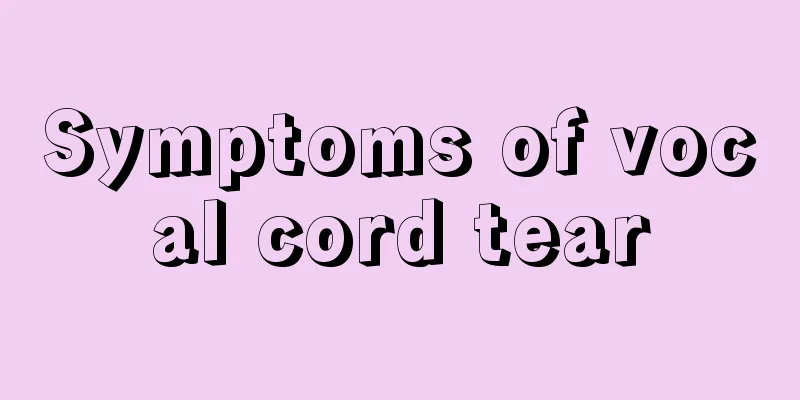Are there risks in pituitary tumor surgery? Pituitary tumor surgery is inevitably dangerous

|
All surgeries have certain risks, and pituitary tumor surgery is no exception. One of the main risks of surgery is pituitary function damage. Damage is inevitable, hormones can replace Analogous to the "surgical" precision strikes in the US war on terror, even with strong military strength, casualties are inevitable. Similarly, doctors will try their best to be "perfect" when performing pituitary tumor surgery, but in some cases it is difficult to completely avoid the loss of some normal pituitary tissue, especially when the surgery is difficult and tumors surrounding the cavernous sinus and major blood vessels are removed. Even for experienced pituitary tumor surgery experts, about 5-10% of patients still experience postoperative hypopituitarism after removing giant pituitary adenomas. Usually once the damage occurs, it cannot be repaired, and some patients may need long-term hormone replacement therapy, including thyroid hormone, corticosteroids, growth hormone, estrogen or testosterone. Function can be partially restored, and lifelong replacement therapy is not required After surgery, the patient will have a pituitary "injury" reaction. For example, damage to the posterior pituitary can cause diabetes insipidus (the incidence rate is between 1-2%). This is because the body fluid filtered by the kidneys cannot be reabsorbed and is excreted from the body in large quantities. The urine produced by the patient is colorless and transparent like water, and frequent urination and thirst will also occur. These symptoms can be replaced by artificially synthesized antidiuretic hormone (i.e., miconazole), with good results. In most patients, pituitary function can be partially restored after surgical trauma and inflammation subside, without the need for long-term medication. In addition, in most patients, after most of the anterior pituitary tissue is removed, the remaining anterior pituitary tissue can still secrete enough hormones for normal human activities, so surgical damage does not mean that lifelong replacement therapy is required. In short, with the popularization and improvement of microsurgical techniques, the proportion of pituitary function damage caused by surgery is becoming less and less, and the degree is becoming less and less severe. The pituitary function of most patients can be gradually restored after surgery, and there is no need to take lifelong medication. |
Recommend
Is it better to go to a traditional Chinese medicine hospital or a western medicine hospital for colorectal cancer
The treatment of colorectal cancer and other canc...
White sticky substance in nose
In life, many people will find some milky white s...
What are the causes of nosebleeds
Nosebleed is a common phenomenon in life. There a...
Which hospital is trustworthy for melanoma
Melanoma is a common skin tumor caused by excessi...
How to deal with lumps in the neck
The small pimples on the neck cannot be ignored, ...
Thyroid nodules larger than 1 cm
If people find problems during the physical exami...
5 major prevention methods for prostate
With the progress of the times, people's livi...
Which foods can damage the body's yang energy?
Traditional Chinese medicine believes that health...
Can children's brain cancer be cured?
Can children's brain cancer be cured? People ...
What are the causes of nasopharyngeal carcinoma
Nasopharyngeal carcinoma is a malignant tumor tha...
What is the reason for self-harm when angry
For most people living in this world, not everyth...
What nutrients does pig brain contain?
Pig brain is actually a common food ingredient in...
Is vomiting caused by prostate cancer contagious?
After getting prostate cancer, there should be so...
What are the nursing care for patients with advanced lung cancer? There are three types of nursing care for patients with advanced lung cancer
Because nowadays many young people usually do not...
What to do if the anus hurts when pooping
In daily life, many people experience pain in the...









